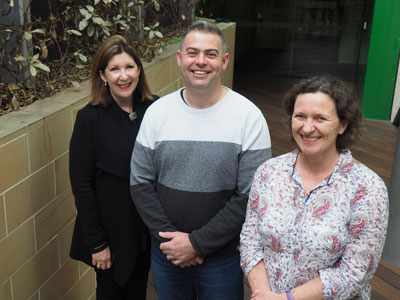
While much has been written on the physical and cognitive effects of dementia, University of Tasmania Wicking Dementia Research and Education Centre researchers will be part of a new book to be launched later this month focussing on the social experiences of dementia.
Wicking Centre researchers Lyn Goldberg, Andrea Price, Susanne Becker and Aidan Bindoff are all contributing authors to the new release Dementia as Social Experience: Valuing Life and Care due to be launched in Sydney on September 24, as part of Dementia Awareness Month.
Dr Goldberg said being a part of the project, which included chapters from a broad spectrum of experts, provided the perfect opportunity to propel the research behind, and impact of the Wicking Centre’s Bachelor of Dementia Care to a broader audience.
The book is particularly aimed at spreading the benefits of ‘person centred and relationship-based care’ for people with dementia which Dr Goldberg said was often talked about, but sometimes not really understood.
“Being involved with a broad range of researchers and authors of contributing chapters for the book, including an anthropologist, a physiotherapist who works with children who have a parent diagnosed with younger onset dementia and others who live with family members with dementia, made this such an interesting project,” Dr Goldberg said
“The book will travel in wider circles than our research and will be a valuable tool for our students too.”
The chapter written by Wicking Centre’s team is titled The Critical Importance of Adopting a ‘Personhood Lens’ in Reframing Support and Care for Those with Dementia. The chapter highlights the benefits and importance of putting the person with dementia and those around them, at the centre of their care.
“The world is moving from considering dementia as solely a medical condition, to putting people with dementia first, including them as actively as possible in decisions about their future, and recognising the importance of working closely with family and friends who are involved in their care” Dr Goldberg said.
“And that has led in turn to this ‘rights based approach’ recognising that receiving adequate care and being part of the decisions made about your care, is an important human right.”
Dementia as Social Experience: Valuing Life and Care is edited by Gaynor MacDonald and Jane Mears.
Published on: 17 Sep 2018